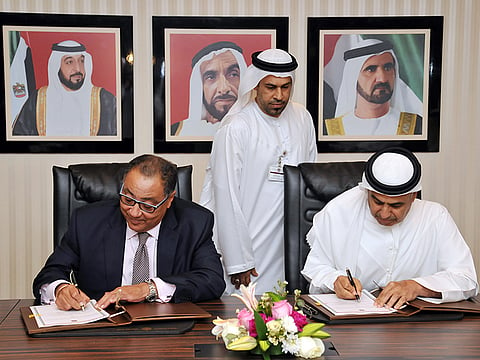UAE government to see surplus in budget in 2016, 2017
World Bank opens Abu Dhabi office to boost private sector

Abu Dhabi: Though the UAE government is expected to face a 2.9 per cent budget deficit in 2015 on the back of lower oil prices, the next year is projected to see a 0.2 per cent [budget] surplus while 2017 will see a 1.5 per cent surplus.
According to a World Bank official, the surplus in the next two years is a result of the government’s amendments and strategies to focus on boosting non-oil sectors.
“We’re not necessarily expecting oil prices to climb back, but governments are starting to adjust to the lower prices by changing their strategies, so we saw the announcement about reducing fuel subsidies in the UAE, which is an excellent policy … Such new strategies will improve the deficit and even result in a budget surplus,” said Hafez Ghanem, the World Bank’s vice president for the Middle East and North Africa region.
Ghanem was speaking on Tuesday at an event to announce the establishment of an Abu Dhabi office for the International Bank for Reconstruction and Development (World Bank).
The agreement to establish the office was co-signed by Obaid Humaid Al Tayer, UAE Minister of State for Financial Affairs, and aims to strengthen the UAE’s financial and economic relations.
Also speaking at the event was Younis Al Khoori, undersecretary at the Ministry of Finance, who said the government may issue some sovereign bonds. “We see the local governments, especially in Abu Dhabi and Dubai, looking at plans to issue the debts not necessarily to finance the budget needs, but to help and support [the economy].”
He added that with the help of the World Bank, the Ministry of Finance will develop a Fiscal Coordination Unit in order to better coordinate between different government sectors.
As for the new the International Bank for Reconstruction and Development office, World Bank’s Ghanem said, “Over the past few years, the World Bank provided a number of studies related to health, education, and infrastructure to support the process of improving the business environment and increasing competitiveness levels in the UAE.
Currently, our top priority in the UAE is developing the private sector and increasing investments from the private sector.”
He added that the World Bank will work on strengthening labour policies, and increasing spending efficiency.
The announcement is based on the UAE Cabinet’s Decision number 84/4 and 1 for 2015 on agreeing to establish an International Bank for Reconstruction and Development office for the next 10 years.
Sign up for the Daily Briefing
Get the latest news and updates straight to your inbox



